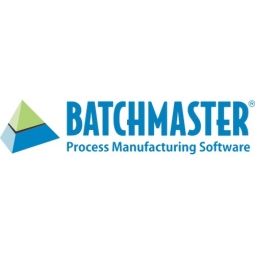Download PDF
Customer Success Story - International Coatings Company
Technology Category
- Functional Applications - Enterprise Resource Planning Systems (ERP)
Applicable Industries
- Chemicals
- Consumer Goods
Applicable Functions
- Discrete Manufacturing
- Procurement
Use Cases
- Inventory Management
- Predictive Maintenance
Services
- System Integration
The Challenge
International Coatings Company (ICC) was in need of a new system to support its growing business, protect margins in a competitive market, control costs, improve inventory control, and reduce shortages. The company, which specializes in textile screen-printing inks and industrial intermediate plastic compounds, was vulnerable to price fluctuations due to its reliance on petroleum-based raw materials. The company was also looking to improve its inventory control and reduce shortages. ICC had been a longtime user of BatchMaster software, starting with the DOS version in 1995. However, the company decided to upgrade to the Windows version in 2002 to support its projected growth and take advantage of the many new features that the Windows version offered.
About The Customer
International Coatings Company (ICC) is a pioneer in the production of vinyl, urethane, and water-based compounds. The company's textile screen print inks, adhesives, primers, coatings, and specialty plastic compounds have become standards in the industry, and are recognized worldwide for their performance, quality, and innovation. With plants in Cerritos, California and Dalton, Georgia, ICC remains one of the few independent, family-owned companies in the textile screen print and plastics compounding industries. The company's extensive products and formulations are found in a wide range of items, such as automobiles, medical appliances, toys, sports equipment and sportswear, including athletic jerseys bags and caps as well as in military and aerospace applications. ICC exports to China, Europe, South Africa, Southeast Asia, and Mexico.
The Solution
ICC decided to upgrade to the Windows version of BatchMaster software in 2002 to support its projected growth and take advantage of the many new features that the Windows version offered. The company evaluated three other systems and selected BatchMaster again, finding it to be the best fit for their business. The BatchMaster software provided ICC with an integrated system that allowed them to track items through the system from raw material to finished goods. This resulted in better inventory control and the ability to track usage history. The software also provided multiple costing methods, which gave ICC the flexibility it required to monitor price movements and set their own prices to maintain their margins. The BatchMaster laboratory functions were also heavily relied upon by ICC for developing new formulas and maintaining a history of previously created formulations.
Operational Impact
Quantitative Benefit
Related Case Studies.
.png)
Case Study
Improving Vending Machine Profitability with the Internet of Things (IoT)
The vending industry is undergoing a sea change, taking advantage of new technologies to go beyond just delivering snacks to creating a new retail location. Intelligent vending machines can be found in many public locations as well as company facilities, selling different types of goods and services, including even computer accessories, gold bars, tickets, and office supplies. With increasing sophistication, they may also provide time- and location-based data pertaining to sales, inventory, and customer preferences. But at the end of the day, vending machine operators know greater profitability is driven by higher sales and lower operating costs.

Case Study
Honeywell - Tata Chemicals Improves Data Accessibility with OneWireless
Tata was facing data accessibility challenges in the cement plant control room tapping signals from remote process control areas and other distant locations, including the gas scrubber. Tata needed a wireless solution to extend its control network securely to remote locations that would also provide seamless communication with existing control applications.

Case Study
Advanced Elastomer Systems Upgrades Production
In order to maintain its share of the international market for thermoplastic elastomers AES recently expanded its Florida plant by adding a new production line. While the existing lines were operating satisfactorily using a PROVOX distributed control system with traditional analog I/O, AES wanted advanced technology on the new line for greater economy, efficiency, and reliability. AES officials were anxious to get this line into production to meet incoming orders, but two hurricanes slowed construction.

Case Study
Series Production with Lot-size-1 Flexibility
Nobilia manufactures customized fitted kitchens with a lot size of 1. They require maximum transparency of tracking design data and individual processing steps so that they can locate a particular piece of kitchen furniture in the sequence of processes.







